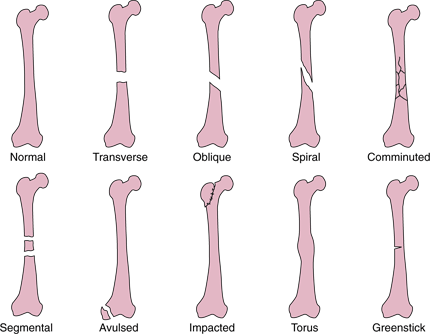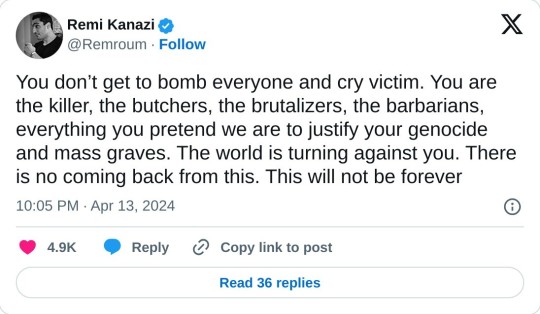Text
Choose Your Own Whumpventure Poll!
Following This Scene (where Caretaker is under cover spying on human training and trafficking organization and gets caught by whumper),
Whatever gets the most votes will be what I write next!
7 notes
·
View notes
Text
thinking about unexpected size difference with whumpers and whumpees.
small, petite whumpers with their huge, intimidating whumpees. maybe they're muscular, maybe they're fat, maybe they're both -- either way, they look like they could crush whumpee in between their fingers. and yet here they are, kneeling like a good pet, all decked out in shiny jewels, wearing pretty outfits that show off their hulking bodies.
maybe they're silent in their submission, playing out gruesome fantasies of killing whumper as they let delicate, elegant fingers trace the fresh set of scars on their back. or maybe they're reverent, utterly devoted, vowing to protect this small, fragile thing that causes them so much unimaginable pain.
47 notes
·
View notes
Text

Giddy up cowboy!
.
.
.
├┬┴┬|•⊖•) ├┬┴┬| art tag: @demondamage @firewheeesky @jayghore @lonesome--hunter @softmutt444 @sunshiline-writes @suspicious-whumping-egg @whump-captain @whumpsday @whumplr-reader @yet-another-heathen
#😐 ← trying not to lose it#I. I need to— WAIT#THE CLAW TIPPED GLOVES HELL YEAH#stop it stop it Wick#get out of the car and go inside already or else#or else what? or else I'll take your new Mica picture away. GO.
9 notes
·
View notes
Text
No see results option, I'm forcing you to perceive yourself. rb for more results plus
#uh......irl probably?#I think I get more visual cool points than anything. between the fashion and the tattoos and the pretty jewelry#that is if youre talking classically 'cool'. but here online I revel in my weird interests and excited shouting#and embarrassing (for you; not me) levels of hype#which is all still there in real life but far more sedate
13K notes
·
View notes
Text
Dealing with Healing and Disability in fantasy: Writing Disability
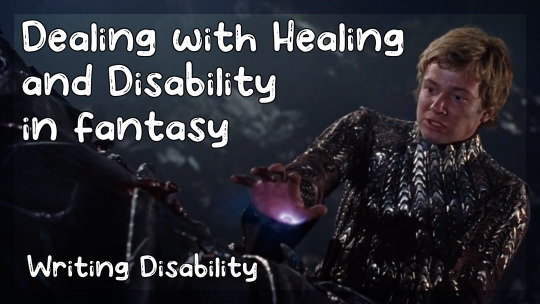
[ID: An image of the main character from Eragon, a white teenage boy with blond hair in silver armour as he sits, with his hand outstretched. On his hand is a glowing blue mark. He is visibly straining as he attempts to heal a large creature in front of him. /End ID]
I'm a massive fan of the fantasy genre, which is why it's so incredibly frustrating when I see so much resistance to adding disability representation to fantasy works. People's go-to reason for leaving us out is usually something to the effect of "But my setting has magic so disability wouldn't exist, it can just be healed!" so let's talk about magic, specifically healing magic, in these settings, and how you can use it without erasing disability from your story.
Ok, let's start with why you would even want to avoid erasing disability from a setting in the first place. I talked about this in a lot more detail in my post on The Miracle Cure. this line of thinking is another version of this trope, but applied to a whole setting (or at least, to the majority of people in the setting) instead of an individual, so it's going to run into the same issues I discussed there. To summarise the points that are relevant to this particular version of the trope though:
Not every disabled person wants or needs a cure - many of us see our disability as a part of our identity. Do difficulties come with being disabled? absolutely! It's literally part of the definition, but for some people in the disabled community, if you took our disabilities away, we would be entirely different people. While it is far from universal, there is a significant number of us who, if given a magical cure with no strings attached, would not take it. Saying no one in your setting would be disabled because these healing spells exists ignores this part of the community.
It messes with the stakes of your story - Just like how resurrecting characters or showing that this is something that is indeed possible in the setting can leave your audience feeling cheated or like they don't have to worry about a character *actually* ever dying. healing a character's disability, or establishing that disability doesn't exist in your setting because "magic" runs into the same problem. It will leave your readers or viewers feeling like they don't have to worry about your characters getting seriously hurt because it will only be temporary, which means your hero's actions carry significantly less risk, which in turn, lowers the stakes and tension if not handled very, very carefully.
It's an over-used trope - quite plainly and simply, this trope shows up a lot in the fantasy genre, to the point where I'd say it's just overused and kind of boring.
So with the "why should you avoid it" covered, let's look at how you can actually handle the topic.
Limited Access and Expensive Costs
One of the most common ways to deal with healing and disability in a fantasy setting, is to make the healing magic available, but inaccessible to most of the population. The most popular way to do that is by making the services of a magical healer capable of curing a disability really expensive to the point that most people just can't afford it. If this is the approach you're going to use, you also typically have to make that type of magic quite rare. To use D&D terms, if every first level sorcerer, bard, cleric and druid can heal a spinal injury, it's going to result in a lot of people who are able to undercut those massive prices and the expense will drop as demand goes down.
If that last sentence didn't give you a hint, this is really popular method in stories that are critiquing capitalistic mindsets and ideologies, and is most commonly used by authors from the USA and other countries with a similar medical system, since it mirrors a lot of the difficulties faced by disabled Americans. If done right, this approach can be very effective, but it does need to be thought through more carefully than I think people tend to do. Mainly because a lot of fantasy stories end with the main character becoming rich and/or powerful, and so these prohibitively expensive cure become attainable by the story's end, which a lot of authors and writer's just never address.
Of course, another approach is to make the availability of the magic itself the barrier. Maybe there just aren't that many people around who know the magic required for that kind of healing, so even without a prohibitive price tag, it's just not something that's an option for most people. If we're looking at a D&D-type setting, maybe you need to be an exceptionally high level to cast the more powerful healing spell, or maybe the spell requires some rare or lost material component. I'd personally advise people to be careful using this approach, since it often leads to stories centred around finding a miracle cure, which then just falls back into that trope more often than not.
Just outright state that some characters don't want/need it
Another, admittedly more direct approach, is to make it that these "cures" exist and are easily attainable, but to just make it that your character or others they encounter don't want or need it. This approach works best for characters who are born with their disabilities or who already had them for a long time before a cure was made available to them. Even within those groups though, this method works better with some types of characters than others depending on many other traits (personality, cultural beliefs, etc), and isn't really a one-size-fits-all solution, but to be fair, that's kind of the point. Some people will want a cure for their disabilities, others are content with their body's the way they are.
There's a few caveats I have with this kind of approach though:
you want to make sure you, as the author, understand why some people in real life don't want a cure, and not just in a "yeah I know these people exist but I don't really get it" kind of way. I'm not saying you have to have a deep, personal understanding or anything, but some degree of understanding is required unless you want to sound like one of those "inspirational" body positivity posts that used to show up on Instagram back in the day.
Be wary when using cultural beliefs as a reasoning. It can work, but when media uses cultural beliefs as a reason for turning down some kind of cure, it's often intending to critique extreme beliefs about medicine, such as the ones seen in some New Age Spirituality groups and particularly intense Christian churches. As a general rule of thumb, it's probably not a good idea to connect these kinds of beliefs to disabled people just being happy in their bodies. Alternatively, you also need to be mindful of the "stuck in time" trope - a trope about indigenous people who are depicted as primitive or, as the name suggests, stuck in an earlier time, for "spurning the ways of the white man" which usually includes medicine or the setting's equivalent magic. I'm not the best person to advise you on how to avoid this specific trope, but my partner (who's Taino) has informed me of how often it shows up in fantasy specifically and we both thought it was worth including a warning at least so creators who are interested in this method know to do some further research.
Give the "cures" long-lasting side effects
Often in the real world, when a "cure" for a disability does exist, it's not a perfect solution and comes with a lot of side effects. For example, if you loose part of your arm in an accident, but you're able to get to a hospital quickly with said severed arm, it can sometimes be reattached, but doing so comes at a cost. Most people I know who had this done had a lot of issues with nerve damage, reduced strength, reduced fine-motor control and often a great deal of pain with no clear source. Two of the people I know who's limbs were saved ended up having them optionally re-amputated only a few years later. Likewise, I know many people who are paraplegics and quadriplegics via spinal injuries, who were able to regain the use of their arms and/or legs. However, the process was not an easy one, and involved years of intense physiotherapy and strength training. For some of them, they need to continue to do this work permanently just to maintain use of the effected limbs, so much so that it impacts their ability to do things like work a full-time job and engage in their hobbies regularly, and even then, none of them will be able bodied again. Even with all that work, they all still experience reduced strength and reduced control of the limbs. depending on the type, place and severity of the injury, some people are able to get back to "almost able bodied" again - such was the case for my childhood best friend's dad, but they often still have to deal with chronic pain from the injury or chronic fatigue.
Even though we are talking about magic in a fantasy setting, we can still look to real-life examples of "cures" to get ideas. Perhaps the magic used has a similar side effect. Yes, your paraplegic character can be "cured" enough to walk again, but the magic maintaining the spell needs a power source to keep it going, so it draws on the person's innate energy within their body, using the very energy the body needs to function and do things like move their limbs. They are cured, but constantly exhausted unless they're very careful, and if the spell is especially strong, the body might struggle to move at all, resulting in something that looks and functions similar to the nerve damage folks with spinal injuries sometimes deal with that causes that muscle weakness and motor control issues. Your amputee might be able to have their leg regrown, but it will always be slightly off. The regrown leg is weaker and causes them to walk with a limp, maybe even requiring them to use a cane or other mobility aid.
Some characters might decide these trade-offs are worth it, and while this cures their initial disability, it leaves them with another. Others might simply decide the initial disability is less trouble than these side effects, and choose to stay as they are.
Consider if these are actually cures
Speaking of looking to the real world for ideas, you might also want to consider whether these cures are doing what the people peddling them are claiming they do. Let's look at the so-called autism cures that spring up every couple of months as an example.
Without getting into the… hotly debated specifics, there are many therapies that are often labelled as "cures" for autism, but in reality, all they are doing is teaching autistic people how to make their autistic traits less noticeable to others. This is called masking, and it's a skill that often comes at great cost to an autistic person's mental health, especially when it's a behaviour that is forced on them. Many of these therapies give the appearance of being a cure, but the disability is still there, as are the needs and difficulties that come with it, they're just hidden away. From an outside perspective though, it often does look like a success, at least in the short-term.
Then there are the entirely fake cures with no basis in reality, the things you'll find from your classic snake-oil salesmen. Even in a fantasy setting where real magic exists, these kinds of scams and misleading treatments can still exist. In fact, I think it would make them even more common than they are in the real world, since there's less suspension of disbelief required for people to fall for them. "What do you mean this miracle tonic is a scam? Phil next door can conjure flames in his hand and make the plants grow with a snap of his fingers, why is it so hard to believe this tonic could regrow my missing limb?"
I think the only example of this approach I've seen, at least recently, is from The Owl House. The magic in this world can do incredible things, but it works in very specific and defined ways. Eda's curse (which can be viewed as an allegory for many disabilities and chronic illnesses) is seemingly an exception to this, and as such, nothing is able to cure it. Treat it, yes, but not cure it. Eda's mother doesn't accept this though, and seeks out a cure anyway and ends up falling for a scam who's "treatments" just make things worse.
In your own stories, you can either have these scams just not work, or kind of work, but in ways that are harmful and just not worth it, like worse versions of the examples in the previous point. Alternatively, like Eda, it's entirely reasonable that a character who's been the target of these scams before might just not want to bother anymore. Eda is a really good example of this approach handled in a way that doesn't make her sad and depressed about it either. She's tried her mum's methods, they didn't work, and now she's found her own way of dealing with it that she's happy with. She only gets upset when her boundaries are ignored by Luz and her mother.
Think about how the healing magic is actually working
If you have a magic system that leans more on the "hard magic" side of things, a great way to get around the issue of healing magic erasing disability is to stop and think about how your healing magic actually works.
My favourite way of doing this is to make healing magic work by accelerating the natural processes of your body. Your body will, given enough time (assuming it remains infection-free) close a slash from a sword and mend a broken bone, but it will never regrow it's own limbs. It will never heal damage to it's own spinal cord. It will never undo whatever causes autism or fix it's own irregularities. Not without help. Likewise, healing magic alone won't do any of these things either, it's just accelerating the existing process and usually, by extension making it safer, since a wound staying open for an hour before you get to a healer is much less likely to get infected than one that slowly and naturally heals over a few weeks.
In one of my own works, I take this even further by making it that the healing magic is only accelerating cell growth and repair, but the healer has to direct it. In order to actually heal, the healer needs to know the anatomy of what they're fixing to the finest detail. A spell can reconnect a torn muscle to a bone, but if you don't understand the structures that allow that to happen in the first place, you're likely going to make things worse. For this reason, you won't really see people using this kind of magic to, say, regrow limbs, even though it technically is possible. A limb is a complicated thing. The healer needs to be able to perfectly envision all the bones, the cartilage, the tendons and ligaments, the muscles (including the little ones, like those found in your skin that make your hair stand on end and give you goose bumps), the fat and skin tissues, all the nerves, all the blood vessels, all the structures within the bone that create your blood. Everything, and they need to know how it all connects, how it is supposed to move and be able to keep that clearly in their mind simultaneously while casting. Their mental image also has to match with the patient's internal "map" of the body and the lost limb, or they'll continue to experience phantom limb sensation even if the healing is successful. It's technically possible, but the chances they'll mess something up is too high, and so it's just not worth the risk to most people, including my main character.
Put Restrictions on the magic
This is mostly just the same advice as above, but for softer magic systems. put limits and restrictions on your healing magic. These can be innate (so things the magic itself is just incapable of doing) or external (things like laws that put limitations on certain types of magic and spells).
An example of internal restriction can be seen in how some people interpret D&D's higher level healing spells like regenerate (a 7th level spell-something most characters won't have access to for quite some time). The rules as written specify that disabilities like lost limbs can be healed using this spell, but some players take this to mean that if a character was born with the disability in question, say, born without a limb, regenerate would only heal them back to their body's natural state, which for them, is still disabled.
An external restriction would be that your setting has outlawed healing magic, perhaps because healing magic carries a lot of risks for some reason, eithe to the caster or the person being healed, or maybe because the healing magic here works by selectively reviving and altering the function of cells, which makes it a form of necromancy, just on a smaller scale. Of course, you can also use the tried and true, "all magic is outlawed" approach too. In either case, it's something that will prevent some people from being able to access it, despite it being technically possible. Other external restrictions could look like not being illegal, per say, but culturally frowned upon or taboo where your character is from.
But what if I don't want to do any of this?
Well you don't have to. These are just suggestions to get you thinking about how to make a world where healing magic and disability exist, but they aren't the only ways. Just the ones I thought of.
Of course, if you'd still rather make a setting where all disability is cured because magic and you just don't want to think about it any deeper, I can't stop you. I do however, want to ask you to at least consider where you are going to draw the line.
Disability, in essence, is what happens when the body stops (or never started) functioning "normally". Sometimes that happens because of an injury, sometimes it's just bad luck, but the boundary between disabled and not disabled is not as solid as I think a lot of people expect it to be, and we as a society have a lot of weird ideas about what is and isn't a disability that just, quite plainly and simply, aren't consistent. You have to remember, a magic system won't pick and choose the way we humans do, it will apply universally, regardless of our societal hang-ups about disability.
What do I mean about this?
Well, consider for a moment, what causes aging?
it's the result of our body not being able to repair itself as effectively as it used to. It's the body not being able to perform that function "normally". So in a setting where all disability is cured, there would be no aging. No elderly people. No death from old age. If you erase disability, you also erase natural processes like aging. magic won't pick and choose like that, not if you want it to be consistent.
Ok, ok, maybe that's too much of a stretch, so instead, let's look at our stereotypical buff hero covered in scars because he's a badass warrior. but in a world where you can heal anything, why would anything scar? Even if it did, could another healing spell not correct that too? Scars are part of the body's natural healing process, but if no natural healing occurred, why would a scar form? Scars are also considered disabling in and of themselves too, especially large ones, since they aren't as flexible or durable as normal skin and can even restrict growth and movement.
Even common things like needing glasses are, using this definition of disability at least, a disability. glasses are a socially accepted disability aid used to correct your eyes when they do not function "normally".
Now to be fair, in reality, there are several definitions of disability, most of which include something about the impact of society. For example, in Australia (according to the Disability Royal Commission), we define disability as "An evolving concept that results from the interaction between a person with impairment(s) and attitudinal and environmental barriers that hinder their full and effective participation in society on an equal basis with others." - or in laymen's terms, the interaction between a person's impairment and societal barriers like people not making things accessible or holding misinformed beliefs about your impairment (e.g. people in wheelchairs are weaker than people who walk). Under a definition like this, things like scars and needing glasses aren't necessarily disabilities (most of the time) but that's because of how our modern society sees them. The problem with using a definition like this though to guide what your magic system will get rid of, is that something like a magic system won't differentiate between an "impairment" that has social impacts that and one that doesn't. It will still probably get rid of anything that is technically an example of your body functioning imperfectly, which all three of these things are. The society in your setting might apply these criteria indirectly, but really, why would they? Very few people like the side effects of aging on the body (and most people typically don't want to die), the issues that come with scars or glasses are annoying (speaking as someone with both) and I can see a lot of people getting rid of them when possible too. If they don't then it's just using the "not everyone wants it approach" I mentioned earlier. If there's some law or some kind of external pressure to push people away from fixing these more normalised issues, then it's using the "restrictions" method I mentioned earlier too.
Once again, you can do whatever you like with your fantasy setting, but it's something I think that would be worth thinking about at least.
44 notes
·
View notes
Text

30K notes
·
View notes
Text
When I say there are things that Israel will never ever take away from Palestinians I also mean the way the fight for Palestine is ingrained into every aspect of our lives, down to even the names we give our children who come decades and decades after our initial Nakba.
For example, Bisan is a very popular girls name in Palestine and it is the name of a Palestinian city that was depopulated by Israel in 1948. Girls with names like Bisan, Yafa and Jenin may not have seen these cities yet, but they carry them within them regardless.
Also, many Palestinians can identify with how our aunts and uncles have symbolic names such as A'ed or A'eda which mean returnee. These names were not chosen arbitrarily by our grandparents who were forced to raise their families in refugee camps. Similarly, there are names like Thaer (revolutionary), Bassel (courageous) and Nidhal (revolutionary struggle) that are very common to this day.
We are literally walking around carrying notions of Palestine and our struggle with us and planting the seeds of resistance within our children, we must be so frustrating!
8K notes
·
View notes
Text
The haunting ancient Celtic carnyx being played for an audience. This is the sound Roman soldiers would have heard their Celtic enemies make.
35K notes
·
View notes
Text
I respect poetry so much because it does what I cannot do - say so much with so little.
When I have something Much to say, it takes me just as many words to say it. I say it with words that are each of them bland and common, unimaginative by their lonesome, with the hopes that if I stack so many together and squeeze a single drop of Much from each that it might flow into something meaningful.
When I have something to say, I say it twice. I say it three times. Because the first or second may not have captured the point. Because I do not trust myself to express the full essence saying it just once. Like just now, those last two sentences. I’ll repeat myself a third time for good measure - because I do not say it right just once or twice.
Poems say things in only a half, only a quarter. They choose single words worth more than ten of mine. I want to know how their minds shop for words. I want to distill myself like poets do. I want to trade in all my too many common words for the way they use an extraordinary few.
If I keep writing this, I’ll write it forever. I’ll explain myself again, as I have already, as I’m doing now. With more and different other words, with the hope of saying myself fully, like how all the hatched and messy wanton scribbles from a pen might finally color in a page. I want to change that. I want to not rip the page I’ve oversaturated by the tip of my pen.
I’ll start tomorrow, maybe, to explain myself less.
50K notes
·
View notes
Text
卓越したボディコントロール Σ(゚Д゚) スッゲ!
Body control of a horse archer
( Reddit:r/Damnthatsinteresting u/rgatoNacho )
#Al Bahlunawat#The Jackal of An-Nadr#sighs dreamily in Mongolian mounted archery#and all the absurdly fun worldbuilding I can squeeze out of it
75K notes
·
View notes
Photo


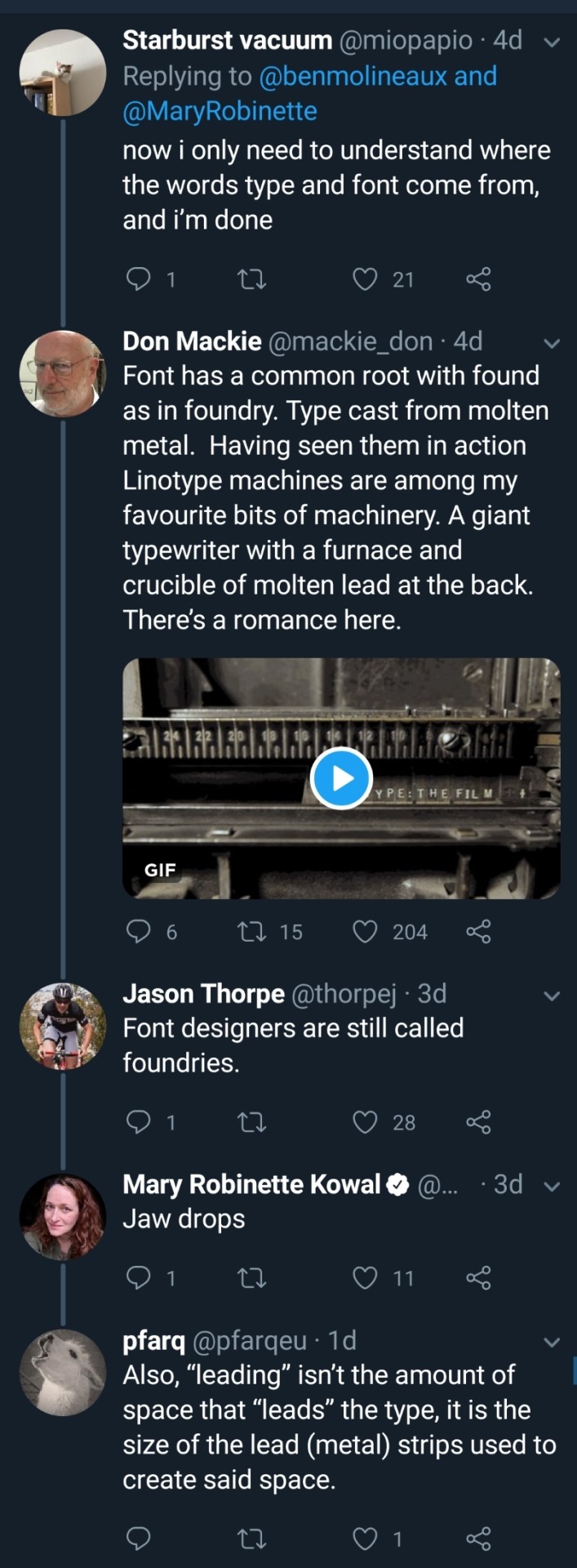

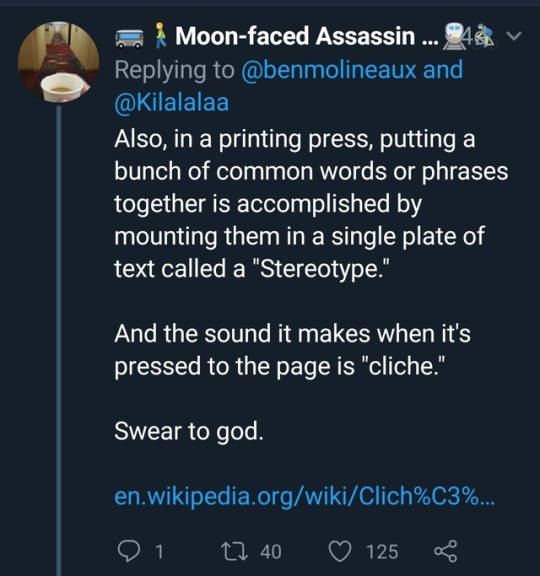
TiL (click to go to the thread, which probably has more interesting tidbits I missed).
Bonus:

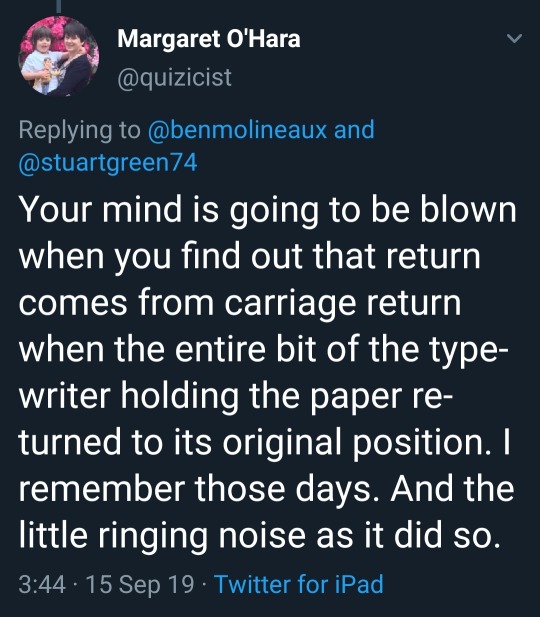
131K notes
·
View notes
Text
going through the hades 2 stuff and im sorry but i just have to ramble a second because look at Hephaestus
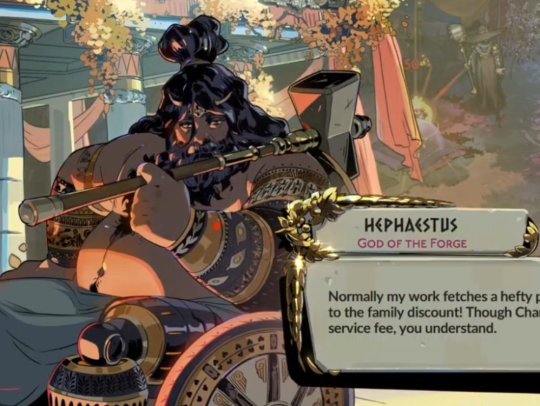
he's not just a wheelchair user but also an amputee. an above knee amputee. wheelchair users are already next to nonexistant in video games but amputees exist in this really...disheartening? spot where they're pretty much just reduced to "person with a cybernetic limb" - it's always just somewhere from "just a cool visual design" to flat out "superpower". I can't think of a video game amputee that is actually disabled by their limb differences - I'm all for futuristic worlds where prosthetics and other disability aids are far advanced from what they are now, but that's not really what's implied by these designs. They're just... Cool designs that in no way reflect on the real-world experience of being an amputee.
Look at Hephaestus, though. Look at that prosthetic. Whilst stylised it very much looks like it functions like common mechanical knees - knee bends when thigh is lifted, knee straightens when thigh is lowered. He's a wheelchair user as well as a prosthetic user - every prosthetic user I know is also a wheelchair user as a prosthetic is not usable in every occasion and also cause exhaustion and pain if used constantly.
Whilst we can't see much of his wheelchair the position he's sat in and the wheels very much evoke active wheelchair to me - this carries on to very specifically the thickness of his arms. Whilst a lot of Hades designs are muscular Hephaestus has very noticeably thick arms - which makes sense, as active wheelchairs require a lot of arm strength.
Just overall this design is making me want to cry - he's not just an actual wheelchair user in a video game, he's a realistic depiction of an amputee, a disability usually brushed over in order to give a character a fun design quirk and nothing else. He's fat and he's hot and he's a realistic depiction of an above knee amputee. Oh my god. Oh my god?
9K notes
·
View notes
Text


It should be a bigger scandal that J.K. Rowling is threatening to sue small accounts for accurately calling her a Holocaust denier. So glad the Streisand effect exists. Now we can all rebuke her reprehensible views more than ever.
14K notes
·
View notes
Note
Nanda, what was your favourite activity doing with your pet besides the obvious?
Nanda pauses. He has the pet stretched out over his lap, now. The young man watches you with an expression that suggests he would murder you if he could. Nanda's fingers gently play through the let's soft dark hair.
"... I guess... Mornings. When I don't have to go anywhere, and we wake up slow... that's the best."
22 notes
·
View notes

